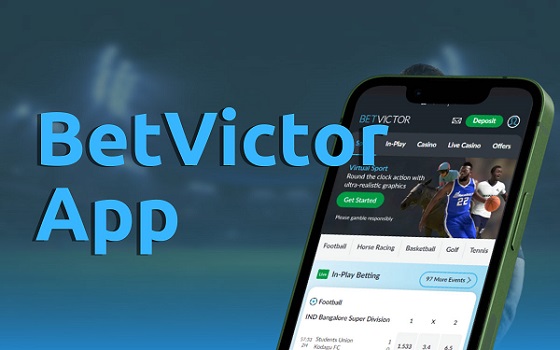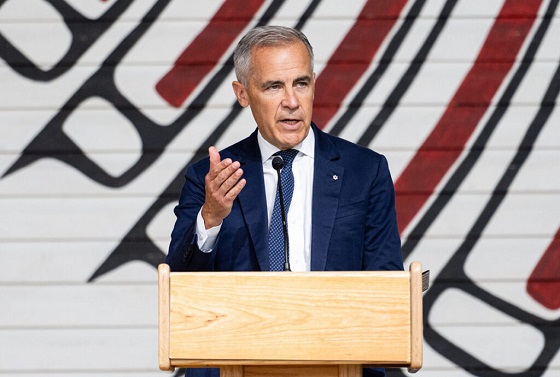Also Interesting
What Does Gambling Bring to the Canadian Economy?

Canada may not quite be the world power of its neighbour to the south but its economy is by no means insubstantial.
With a GDP of almost $2.1 trillion a year it stands as the ninth largest in the world, positioned between Russia, another close neighbour, and Italy.
Key sectors include mining, manufacturing and service industries. In recent years technology has also started to play a more significant part, boosted by government aid for start-ups.
There’s another booming area of business that crosses over several sectors and, in doing so, gambling competes with several other entertainment sectors.
The size of the industry
In 2021 the size of the Canadian gambling industry was $12.54 billion and it is currently showing an annual growth rate of around 12%. This puts it on a par with the film and television industry in the country, however this is not currently showing anything like the same rate of growth.
So we can expect to see an increasing gulf grow between these two very different kinds of entertainment going forward.
The growth of the industry can be put down to the fact that individual provinces are gradually starting to permit more and more gaming options under their control. In addition, the growth of online casinos and other forms of betting are also having a significant effect.
So who’s playing?
Looking into the figures, it throws up some very interesting insights. For example, it’s estimated that around 19 million adults in Canada participate in some form of gambling each year.
Looking at the gender split, men are marginally more likely to gamble than women with the respective percentages being 68.8% and 60.4%.
In terms of the minimum permitted age for gambling, the general rule across the country is that all players must be at least 19. However, as provinces are allowed to set their own limits over the activity in their particular region, this is 18 in Manitoba, Quebec and Alberta.
Digging a little deeper into the demographics, it’s households with higher levels of disposable income who tend to participate the most. However, there may be a few warning signs that the increasing interest rates and the rising cost of living may soon put more of a squeeze on this group.
The games people play

In common with most countries where betting is legal, it’s lotteries that are the big money-spinners in Canada. These are run by two organisations that cover the country, the Interprovincial Lottery Corporation and the Western Canada Lottery Corporation. Not only do the lotteries offer players the chance to win life-changing sums, they also raise around $1.25 billion a year in revenue for the government.
As already mentioned, online casinos and other forms of activity including poker games are also becoming more and more popular. As a result, an increasing number of major global operators are now offering their services to the Canadian market.
But perhaps the biggest change of all in recent years has been the 2021 ruling allowing betting on single sporting events. Canadians are very keen on sports whether it’s hockey, horse racing or football so now that many provinces are starting to permit sports gambling, rapid growth is anticipated.
Employment
Gambling also contributes greatly to the Canadian economy in a number of less direct ways beyond raising taxes and contributing to the GDP. One of these is in providing direct employment to an estimated 182,500 Canadians. What’s more, these are relatively well-paid jobs in the main with an average income of around $65,000 a year.
In total this amounts to a very considerable $11.9 billion in labour income.
This figure rises even further when you also start to take into account the many ancillary industries that also serve the gambling sector.
These are exceptionally wide ranging and include businesses across numerous specialisms. Examples include printing companies such as Nanoptix Inc. of New Brunswick who produce lottery tickets and the work apparel company Unisync Corp. which supplies uniforms for many of the 8000+ employees working in brick and mortar casinos.
Casinos themselves, and there are over 100 across the country, also provide business opportunities for everyone from food and produce suppliers to the energy companies that power them.
So, as you can see, gambling in its many forms has a very important role to play across the whole Canadian company.
As we move forward, this role is set to become even more significant offering revenue-raising opportunities for the government and employment opportunities for working Canadians.
Much will be fuelled by advances in technology and we can expect to see the online casino and sportsbook sector continue to grow and make ever-greater contributions to the economy.
And it’s also the fans of gambling who will also enjoy all of the benefits that this ever-widening choice will bring them.
Also Interesting
Cryptocurrency and Online Casinos and What’s Next for Bitcoin and Ethereum Payments: Overview From Specialists at Rabona Betting

Cryptocurrencies are becoming more common in everyday transactions. You can purchase things via digital currency on different sites and the system automatically exchanges it into the fiat currency like CAD.
This payment method is also popular at online casinos because of fast transactions, specifically, withdrawals. You can deposit money and place a bet on Napoli FC Rabona Canada, play various games, and then withdraw winnings the way you deposited funds. This article explores this interesting opportunity and what may come in the future.
Why Casinos Use Cryptocurrency
Online casinos like Rabona betting use cryptocurrency because it transfers funds faster than traditional payment systems. Bitcoin and Ethereum transactions don’t rely on banks, so transfers complete within minutes.
Players from countries with financial regulations use crypto wallets to send or receive funds without card rejections or blocked transfers. Casinos also cut costs since they don’t pay high processing fees to banks or card companies.
Crypto systems record each transaction on a blockchain ledger, so every move of money is visible and cannot be changed. That reduces disputes over withdrawals and deposits since each transaction’s info is available in public records.
Casinos that accept Bitcoin or Ethereum attract a wide range of players who prefer anonymity. Traditional payment systems require full identity checks, while crypto transfers use wallet addresses.
Players still need to pass KYC checks under legal standards, but crypto wallets give more privacy since they don’t require your bank data.
How Bitcoin and Ethereum Shape Casino Payments
Bitcoin is the top choice for online gamblers because most payment systems already integrate it easily. It allows deposits and withdrawals in similar amounts to bank transfers.
Sites like Rabona betting often provide it for high-volume transactions because cryptocurrency networks handle large sums safely and quickly. Digital currencies stands out because they allow smart contracts.
These contracts handle payouts automatically when a condition is met. For example, a casino game that uses an Ethereum contract can send a payout as soon as a winning combination appears, without manual approval.
Players deposit money and the casino automatically exchanges it to CAD. Thus, users can play bets in a currency they’re used to, and withdraw via the same crypto system that converts CAD to BTC, ETH, etc.
What’s Next for Bitcoin and Ethereum in Gambling
Future development aims to increase transaction speed and reduce fees. Bitcoin developers work on the Lightning Network, which processes microtransactions instantly through off-chain channels. That system suits online casinos since it handles many small bets quickly.
Ethereum’s developers improve scalability through updates that raise network capacity and lower gas costs. That’s one of the reasons why Ethereum switched from PoW to PoS.
Conclusion
Casinos like Rabona betting and others keep expanding payments to include more currencies like Solana, Cardano, Avalanche, or stablecoins like USDC, EURC, EURQ, and more. Most cryptocurrencies process transactions faster and provide some sort of anonymity, so players will continue using them at online casinos.
Also Interesting
Alberta takes a step towards iGaming legislation

Alberta is moving closer to joining the growing list of Canadian provinces embracing regulated online gambling. The province’s proposed Bill 48, known as the Alberta iGaming Act, has cleared its second reading in the Legislative Assembly, marking a significant milestone toward establishing a competitive, open iGaming market. For many observers, this signals that Alberta could soon follow in Ontario’s footsteps, paving the way for private operators to enter what’s currently a government-run landscape.
At the heart of the bill is the creation of the Alberta iGaming Corporation, an independent body that would oversee licensing, compliance, and responsible gaming initiatives. Its responsibilities would include setting technical standards, enforcing fair play through random number generator integrity checks, and ensuring operators meet anti-money laundering requirements. A board of seven directors, appointed by the Minister of Service Alberta and Red Tape Reduction, would guide the new regulator’s operations.
Support for the bill appears solid, with the United Conservative Party holding a majority in the legislature. The expectation is that once it passes through committee review and any amendments are finalized, the province will begin building the framework for its digital gaming market. Industry watchers are already predicting that the new system could roll out by mid-2026, with the first operators going live soon after.
The model Alberta is chasing looks a lot like Ontario’s, which launched its open iGaming market in 2022 and now records over a billion dollars in monthly wagers. Alberta’s approach aims to balance opportunity and oversight, letting gaming operators compete alongside the government’s Play Alberta platform. This move is expected to boost competition, variety, and consumer protection all at once, and could significantly contribute to the local economy. It just makes sense that any Canadian online casino targeting this North American market would welcome the news, as Alberta represents a massive untapped audience eager for safe and modern gaming options.
Consumer safeguards are a core part of Bill 48’s design. A centralized self-exclusion system would allow players to opt out of all licensed platforms through a single registration. There will also be mandatory age verification, betting limits, and spending alerts to promote responsible play. Revenues from the new market are expected to fund social programs and gambling treatment initiatives, ensuring that the benefits extend beyond the casino floor.
A big part of the motivation behind Bill 48 is to steer players away from unregulated offshore sites. Right now, thousands of Albertans gamble online through platforms that operate outside Canadian jurisdiction, offering little in the way of player protection or accountability. A legal, competitive market within Alberta would not only keep those dollars at home but also attract marketing investment and innovation from major operators.
If all goes as planned, Alberta’s iGaming Corporation could begin issuing licenses by next year, setting the stage for a 2026 launch. The province’s measured approach shows a clear preference for getting the framework right rather than rushing it through. For local players and the gaming industry alike, Alberta’s next chapter in digital entertainment is starting to take shape, and it looks like a winning hand.
-

 Daily Caller2 days ago
Daily Caller2 days agoUS Nuclear Bomber Fleet Shares Fence With Trailer Park Linked To Chinese Intel-Tied Fraudster
-

 Daily Caller2 days ago
Daily Caller2 days agoLaura Ingraham Presses Trump On Allowing Flood Of Chinese Students Into US
-

 espionage2 days ago
espionage2 days agoChinese-Owned Trailer Park Beside U.S. Stealth Bomber Base Linked to Alleged Vancouver Repression Case
-

 Environment2 days ago
Environment2 days agoThe Myths We’re Told About Climate Change | Michael Shellenberger
-

 Crime2 days ago
Crime2 days agoCBSA Bust Uncovers Mexican Cartel Network in Montreal High-Rise, Moving Hundreds Across Canada-U.S. Border
-

 COVID-192 days ago
COVID-192 days agoSpy Agencies Cozied Up To Wuhan Virologist Before Lying About Pandemic
-

 Business2 days ago
Business2 days agoCarney and other world leaders should recognize world’s dependence on fossil fuels
-

 Alberta1 day ago
Alberta1 day agoMark Carney Has Failed to Make Use of the Powerful Tools at His Disposal to Get Oil Pipelines Built







